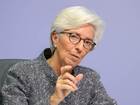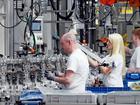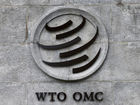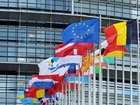The worst of the economic crisis unleashed by the coronavirus pandemic is likely over, European Central Bank chief Christine Lagarde said Friday, warning however that the new normal will look different from what was before.
 Full Story
Full Story
A sharp rise in fresh virus infections in the United States and elsewhere sparked a hard sell-off in equities Thursday, following hefty losses on Wall Street and in Europe.
 Full Story
Full Story
Italy gave the green light Wednesday to providing a state guarantee for a 6.3-billion-euro ($7.1 billion) loan to Fiat Chrysler as the automaker struggles with the impact of the coronavirus.
 Full Story
Full Story
Equities were mixed Wednesday in Asia after a healthy run-up the day before as traders weigh positive data suggesting economies are recovering against signs of a second wave of infections and the reintroduction of some lockdowns.
 Full Story
Full Story
German business confidence in June recovered more ground lost to the coronavirus, a closely-watched survey showed Wednesday, even as local outbreaks led to shutdowns in some parts of the country.
 Full Story
Full Story
Global trade is expected to drop around 18.5 percent year-on-year in the second quarter of 2020 in a huge coronavirus-driven plunge which nonetheless could have been much worse, the WTO said Tuesday.
 Full Story
Full Story
In normal times, tourists must rise at dawn to secure a free sunbed on the beach in Antalya, a popular holiday resort in southern Turkey.
 Full Story
Full Story
Germany has turned the corner on the worst of an economic crisis sparked by the coronavirus pandemic and is now on the path to recovery, the central bank chief of Europe's biggest economy said Sunday.
 Full Story
Full Story
China banned imports from a top U.S. poultry producer and ordered a Beijing Pepsi factory to close Sunday as authorities clamped down on food production and distribution amid a new coronavirus cluster in the capital.
 Full Story
Full Story
Dutch Prime Minister Mark Rutte raised doubts Friday that EU leaders would reach a deal at a summit in July on a huge 750-billion-euro ($840-billion) post-coronavirus recovery plan.
 Full Story
Full Story



